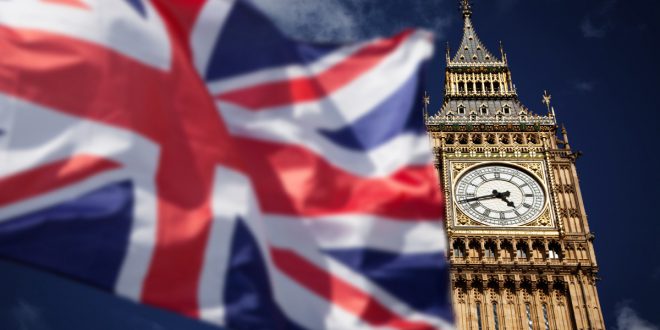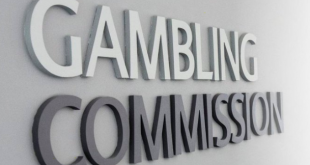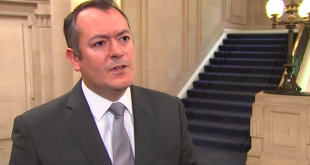Industry strategic consultancy Regulus Partners looks at the shifts in the French market, and the launch of a Christmas abstinence campaign
France: FDJ IPO – plus ca change?
As the IPO of FDJ looms (reportedly at the upper end of the price range on an over-subscribed book) ARJEL has reported another strong online market performance. Domestically regulated online revenue grew 37% YoY to €310m, driven by: a 53% increase in sports betting to €197m, despite WC comps (8% turnover growth but more favourable margins, 15% cut in bonuses); an 11% increase in horseracing (6% turnover growth, bonuses down 38%) to €61m and a 23% increase in poker (12% underlying, 18% cut in bonuses) to €52m. While continuing to show strong mass-market-led growth, Frances’ domestically regulated commercial online sector is still likely channelling less than 50% of the overall market and is dwarfed by retail: FDJ’s run-rate monopoly protected retail revenue is €5.3bn (87% lottery, 13% betting), with only a relatively tiny proportion exposed to online competition. Equally, PMU’s run-rate revenue of €2.3bn contains only struggling and small contributions from sportsbetting and poker, though it has the lion’s share of online horseracing. France’s casino complete the landscape with €2.3bn in revenue, again with a relatively tiny (JOA poker) online presence.
France therefore has a €10.5bn revenue gambling market, of which only 8.4% is commercial online gambling (and in 20% of that the racing monopoly has a massive structural advantage). While the French monopolies have broadly done well where they have not faced direct competition, they have performed poorly against a (slightly more) level playing field (vs. Betclic, Kindred and Winamax especially: two of which are essentially local specialists – most big online names are absent due to high turnover taxes and/or the lack of online casino). One of the key questions for the newly privatised FDJ therefore is whether this trend can be reversed – either organically or otherwise. FDJ might be c. 50% of France’s total gambling market, but unless it is a dynamic part, investors are likely to soon lose interest, in our view (even with an 80% dividend payout ratio from 2020).
One area that could have generated this dynamism was the potential for offering RNG games, which was suggested in drafts of the legislation to allow privatisation. However, this has now been clarified as not happening, meaning an easy (if highly controversial) government product bung to accelerate growth (deliberately or otherwise) will not be forthcoming.
FDJ’s recent acquisition of Sporting Index (including its B2B element) might be a clearer indication of ambitions. It shows an willingness for targeted M&A, a focus on improving sportsbetting capabilities and potentially an appetite for new business streams and geographies beyond France. A newly privatised French business using its balance sheet to shore up its domestic position and expand overseas would likely be both ‘on message’ from a government perspective and potentially provide the kind of strategic impetus necessary to improve performance and keep investors happy. The risks inherent in combining lottery duties of care and financial return with commercial gambling are already implicit in FDJ’s structure, meaning the only ‘leap’ would be an international dimension – which does not seem that far-fetched to us. Tellingly for a market that likes to tax (51% of Q3 overall commercial online net revenue was taken up in duties and sports fees – a notably higher blended figure than much derided Pennsylvania), FDJ nevertheless has the scale both to pay c. €3.5n in duties, fees and good causes (66% of revenue) and also to generate c. €320-400m in adj. EBITDA.
In terms of the underlying structure and scale of the French market, the privatisation of FDJ would seem to change very little. However, it might unleash a very big beast on the world stage with an appetite for something more than relatively lacklustre protected domestic growth and an overall market share challenged by poorly executed channel shift…
UK: safer gambling – “Won’t you play another day?”; Christmas abstinence campaign launched
A group of gambling concern activists have this week launched a campaign to address concerns around gambling at Christmas. The campaign – “nobet364” – calls on remote operators to suspend activity on Christmas Day; to raise awareness of the need for support for those struggling with gambling disorder during the festive season; and to remind those seeking to quit gambling that abstinence needs to be maintained all year round.
The idea that operators should go dark for a day will strike many in the industry as excessive and a curtailment on consumer and cultural freedoms (Christmas is at least notionally a Christian celebration after all). However, licensed gambling venues do shut their doors for Christmas as do many other leisure retail outlets. Indeed, Christmas Day trading for any business (let alone an activity as morally complex as gambling) is very much an early 21st century concept – and so not necessarily an accepted norm.
The campaign is also grounded in legitimate concerns around the potential for harm at Christmas. In addition to the elevated alcohol consumption of the season, it can be a very difficult time for those on their own. The absence of domestic fixtures means that sports betting (a lower risk activity) may be skewed towards more obscure events (an area where researchers have flagged concerns); while the idea that people may have nothing better to do on Christmas Day than play online slots will undoubtedly jar with some.
While operators are understandably wary of initiatives that seem to resemble the thin edge rather than the wedge entire, they should avoid the temptation to dismiss this latest campaign out of hand. Nobet364 possesses a beautiful simplicity that is the hallmark of popular campaigns – and it plugs into themes of Christianity and Victorian virtue (both celebrated as part of our modern Christmas). It seems likely to appeal to parliamentarians such as the Bishop of St Albans and Iain Duncan Smith but has the potential for wider appeal. Most importantly, the idea has some merit. As the psychologist and Nobel laureate for Economics, Daniel Kahneman encourages us, it is always worth asking the question “what would make this a good idea?”.
Companies may not wish to suspend operations for the day (at the very least sites would presumably have to remain open to facilitate withdrawals and allow customers to access safer gambling tools). However, thought should be given to ensuring that risk at Christmas is addressed – for example through analysis of gambling behaviours in prior years; heightened vigilance; seasonal safer gambling messaging; marketing suppression; and ensuring appropriate staffing expertise (including the availability of ‘warm transfers’ to the National Helpline).
Many of the advances made by British licensees to reduce risk of harm have arisen from a willingness to explore the middle ground with their critics – and so to make sensible amendments to operating practice. Nobet364 raises a number of valid concerns and warrants a positive and constructive response.
UK: out of Parliament – Industry braced for manifesto destiny
Given that this is national anti-bullying week, it is perhaps helpful that MPs (some of whom seem unable to behave with common decency) were not sitting this week. It was thus a rather quiet few days in the politics of gambling. This seems likely to change with the publication next week of party manifestos ahead of December’s General Election.
On Tuesday of this week, the Royal Society for Public Health published an open-letter wish-list of items that it would like to see included within party manifestos. This included the establishment of a statutory levy to fund gambling harm research, education and treatment. It seems highly likely that the Labour Party will include such a pledge in its manifesto (it has after all been policy for some time) and others (Liberal Democrats, Scottish Nationalists) could well follow suit.
In an article published on Friday, James Noyes (the former advisor on gambling policy to the former Labour Party Deputy Leader, Tom Watson) indicated that a broader range of policies may find their way into party manifestos – including “reasonable limits to online gambling, for an Ombudsman to protect consumers, for a review of offshore licence holders operating in the UK” as well as a levy. These are all Labour policies but Dr Noyes seemed to suggest that other parties may adopt them, writing that gambling reform “is now a broad church. Gambling has become one of the few domestic policy issues that has support across party lines.”
Given stock market jumpiness about political intervention, next week could give gambling investors an interesting ride. We will flag anything particularly portentous in WP updates as manifestos are published.
Global: safer gambling – gambling researchers puzzle the state of independence
Gambling research was in the spotlight this week as first GVC unveiled details of their partnership with Harvard Medical School; and then the Advisory Board for Safer Gambling convened a meeting in London to discuss the future of research in Britain.
Despite the fanfare, the GVC-Harvard project is not so much something new as a revival of the old bwin Transparency Project. Begun in 2005, the project pre-empted Gambling Commission calls for data sharing by more than a decade (something that those who think that operators only respond to threats should reflect upon) before closing in 2014. There is a much to admire in the re-launched project – a substantial financial commitment ($5.5m over five years); robust transparency and governance arrangements; the intellectual expertise provided by world renowned researchers Debi LaPlante and Sarah Nelson; and the strong basis (in terms of infrastructure, insight and identified pitfalls) from the previous bwin collaboration.
It all raises two important questions: 1) why – in this age of collaboration – are not more operators involved (the initiative has after all been well-flagged by GVC); and 2) why do we need a separate (licensee-funded) data hub and research facility in Leeds – as favoured by the Gambling Commission and GambleAware if the architecture already exists in Massachusetts. There may be valid answers to these questions – but the sake of appearances should not be one.
Later in the week, the ABSG called together around 30 of Britain’s leading academics to discuss how research should be conducted in the future. We are not aware of precisely what was discussed (the ABSG and Gambling Commission websites make no mention of the meeting; there are limits to transparency, it seems) and must hope that reforms will be guided by reason and tolerance. Clearer guidance from the Gambling Commission about how research should be conducted would, for example be a positive step forward – and may help to deter the tiresome attempts by all sides to debunk sound studies due to inconvenient findings.









